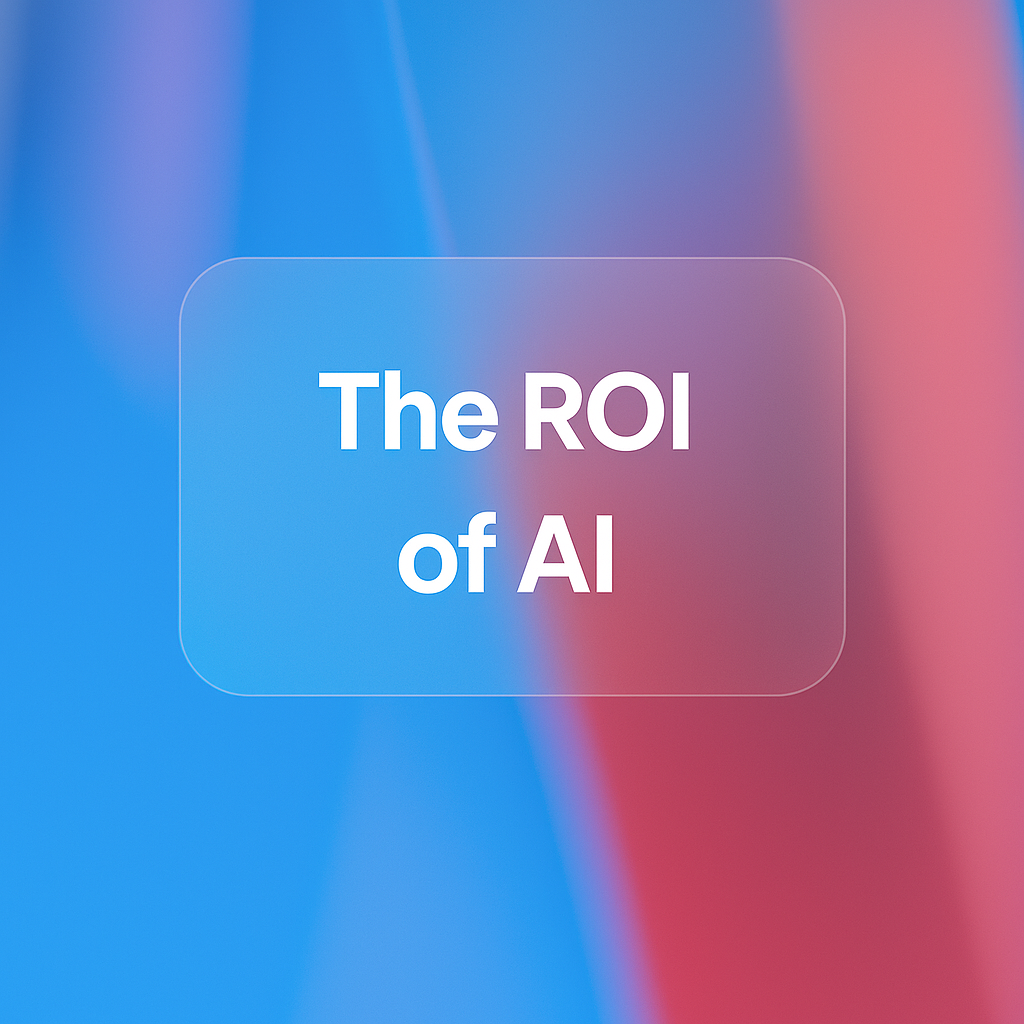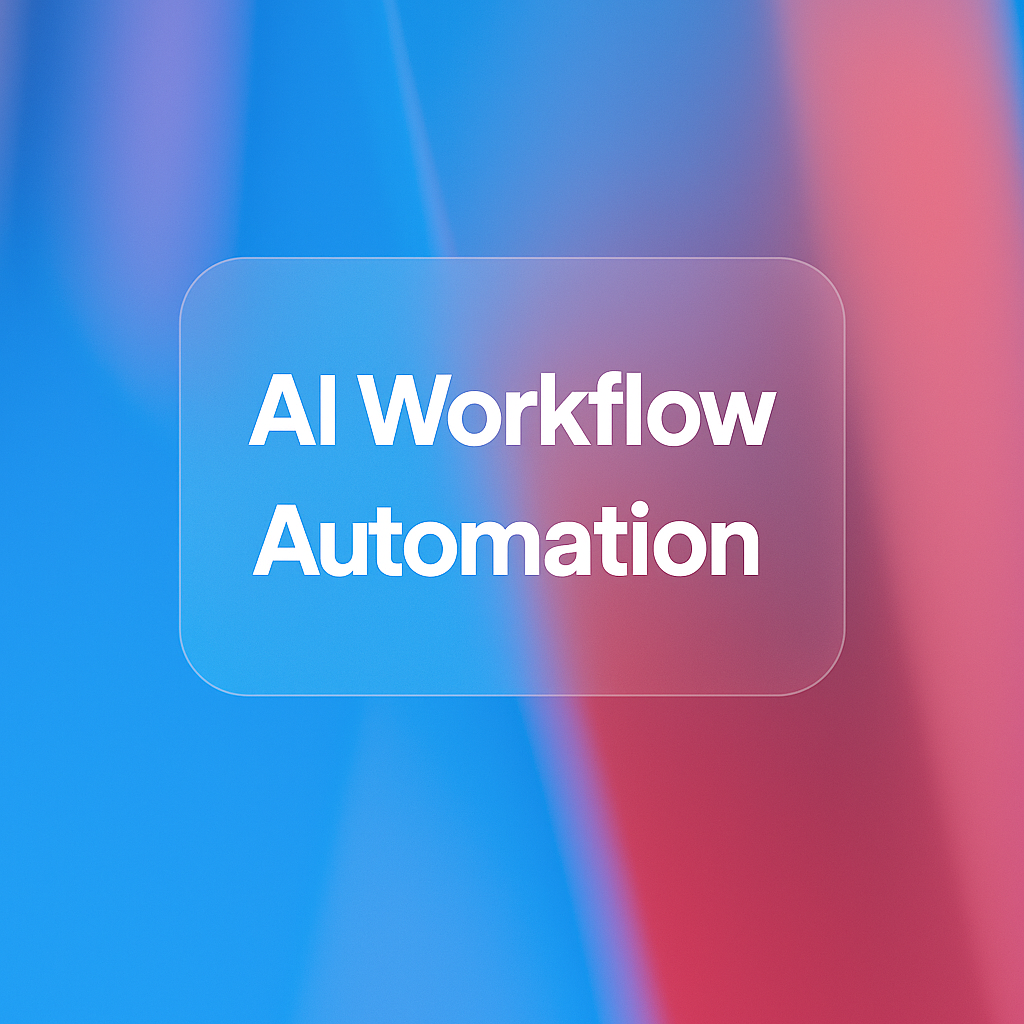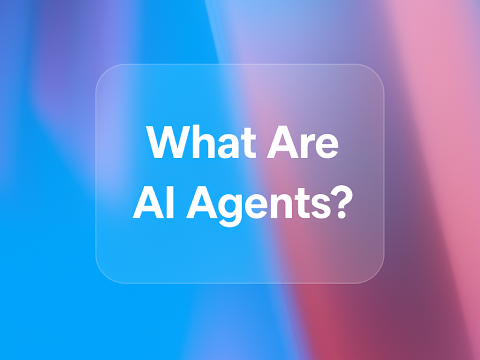
The ROI of AI: Measuring What Actually Matters
Most companies measure AI success by cost savings—but the real ROI comes from competitive advantages, innovation, and long-term strategic value. Learn how to measure what truly matters.
The workplace is experiencing a quiet revolution. While everyone’s talking about ChatGPT and generative AI, a more sophisticated technology is emerging that promises to transform how we work: AI agents. These aren’t just chatbots with better conversation skills — they’re autonomous digital assistants capable of planning, reasoning, and executing complex tasks without constant human oversight.
If you’ve ever wished you had a tireless colleague who could handle routine tasks, research complex topics, and even make decisions based on your preferences, you’re describing exactly what AI agents are designed to do. But understanding what they are, how they work, and how they can benefit your specific role requires looking beyond the hype to examine real-world applications and practical implementation strategies.
AI agents represent a fundamental shift from reactive AI tools to proactive digital assistants. While traditional AI responds to direct prompts, agents can break down complex objectives into smaller tasks, execute multiple steps autonomously, and adapt their approach based on results.
The key distinguishing feature of AI agents is their ability to maintain context across multiple interactions while working toward longer-term goals. Instead of treating each request as isolated, agents remember previous conversations, learn from outcomes, and build on past successes to improve future performance.
For example, a traditional AI tool might help you write a single email, but an AI agent could manage an entire campaign: researching your audience, drafting personalized messages, scheduling send times, monitoring responses, and following up with prospects who show interest.
Modern AI agents combine several advanced technologies:
Rather than just responding to one-off tasks, they build long-term collaborations that grow more useful as they learn how you work.
To effectively implement AI agents, use this structured framework:
Here’s how a sales manager might configure an AI agent for lead qualification:
Executives can use AI agents for strategic research and decision support. These agents analyze market trends, track competitors, and synthesize complex data into briefings, allowing leaders to focus on action, not information gathering.
Marketing agents can handle end-to-end campaign workflows — from planning and content creation to scheduling and performance optimization. They adjust strategies based on real-time data while maintaining a consistent brand voice.
Project managers use agents for stakeholder updates, resource tracking, and risk alerts. Agents monitor progress, flag bottlenecks, schedule meetings, and ensure every stakeholder is kept informed with tailored messaging.
Agents help with patient communications, scheduling, and compliance. They automate routine tasks and ensure HIPAA compliance while escalating anything that requires medical judgment.
Agents monitor market shifts, generate reports, and offer insights aligned with client goals. They help advisors stay compliant while delivering personalized experiences at scale.
Agents assist with support tickets, documentation, and QA testing. They detect patterns in user feedback and help prioritize product updates.
Start with narrow, well-defined use cases and gradually increase autonomy as the agent proves itself. Too much freedom too soon can cause issues; too little limits usefulness.
Begin with agents that work within a single platform before tackling complex integrations. Focus on clear value delivery first.
Set up ongoing performance reviews and feedback loops. Use real metrics — not just task completion — to measure success and refine behavior.
Track time saved, quality of outcomes, and how agent performance improves over time. Look at the big picture: is your workflow getting more efficient?
AI agents are moving beyond simple automation to become trusted digital collaborators. When implemented thoughtfully, they free up humans for more strategic, creative, and relational work.
Success requires clear goals, smart boundaries, and regular tuning. Those who embrace agents as team players — not just tools — will unlock a powerful new era of productivity and innovation.

Most companies measure AI success by cost savings—but the real ROI comes from competitive advantages, innovation, and long-term strategic value. Learn how to measure what truly matters.

Tired of drowning in repetitive tasks and disorganized systems? Learn how AI workflow automation can turn daily chaos into streamlined clarity, freeing up your time for what really matters.

Imagine a digital teammate who not only understands your goals but takes initiative, researching, planning, and executing tasks while you focus on the big picture. That’s the promise of AI agents: intelligent, autonomous systems reshaping how modern work gets done.

Unlocking AI’s full potential doesn’t start with the tech, it starts with your words. A well-crafted prompt is your golden key to better outputs, faster workflows, and smarter results. Master the art, and watch GenAI become your most powerful collaborator.
Navigation
Industries
Roles
Categories
2025 © UseGen.ai. All rights reserved.